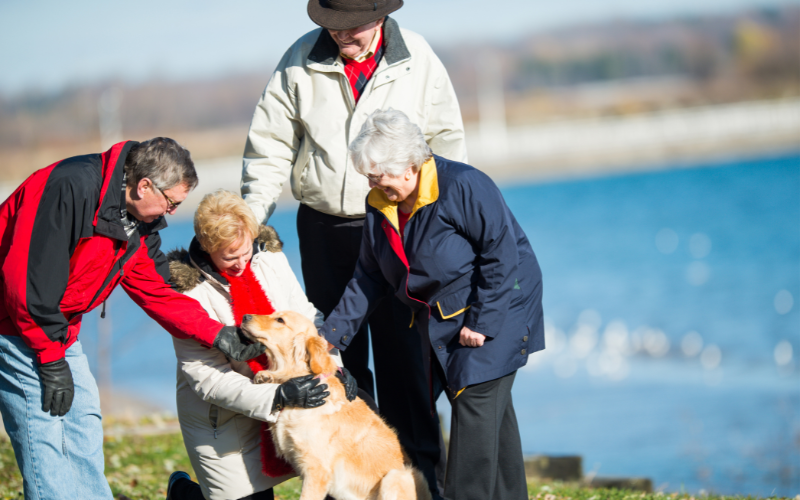As seniors enter their golden years, the companionship of a furry friend can be an invaluable addition to their lives. However, not every dog breed is a good fit for elderly owners, and choosing the right one is essential to ensure a happy and harmonious relationship. In this comprehensive guide, we’ll take a closer look at the top 10 worst dog breeds for seniors, shedding light on the challenges these breeds may present and offering alternative options that may be better suited for older individuals.
Throughout this article, we will explore the unique characteristics of each breed, discuss why they might not be the best choice for seniors, and suggest more suitable alternatives for those who still desire a canine companion. Some breeds may have high energy levels, require extensive grooming, or possess stubborn or challenging temperaments, making them less than ideal for seniors with limited mobility, time, or energy. By understanding these challenges and considering more suitable breeds, seniors can find the perfect canine companion that matches their lifestyle and needs.
Join us as we delve into the top 10 worst dog breeds for seniors, equipping you with the knowledge to make an informed decision when selecting the perfect pet for your golden years. With the right information and careful consideration, you’ll be well on your way to enjoying a happy and healthy life with a canine companion that truly complements your lifestyle.
1. Siberian Husky: A High-Energy Breed
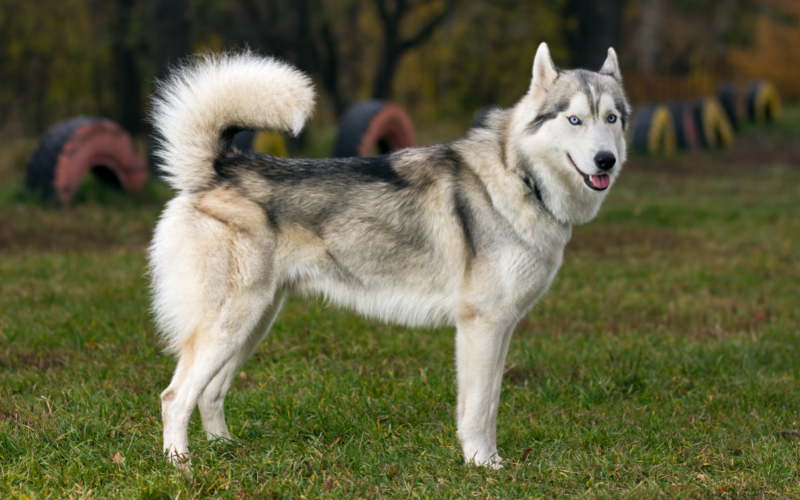
The Siberian Husky is a stunning and powerful breed, known for its striking appearance and incredible endurance. However, these dogs require immense amounts of exercise and mental stimulation, making them a poor choice for seniors with limited mobility or energy levels. Their thick double coats also demand regular grooming, which can be challenging for seniors to maintain. Alternatives to consider: smaller, lower-energy breeds like the Shih Tzu or Cavalier King Charles Spaniel.
2. Rottweiler: Strength and Stubbornness
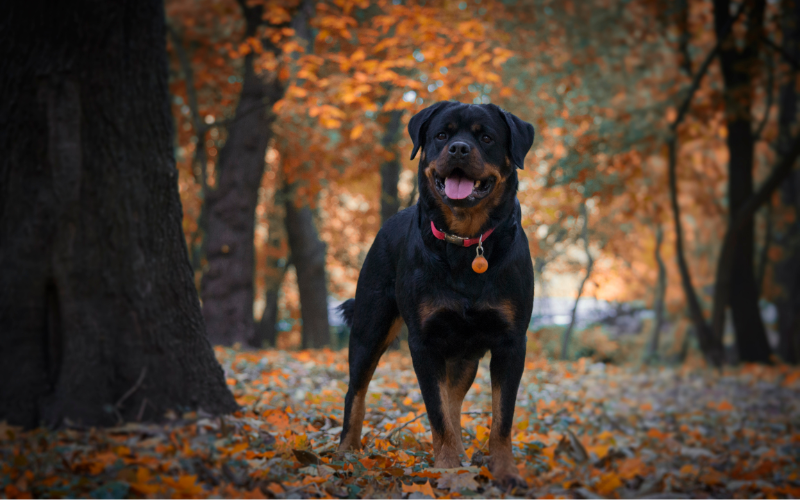
Rottweilers are intelligent and loyal dogs, but their size and strength can be overwhelming for seniors. These dogs can weigh up to 130 pounds and require an experienced, confident handler to manage their protective instincts. Rottweilers also have a stubborn streak, which can make training more difficult for seniors who may lack the physical ability or experience to establish dominance. Instead, consider a smaller, more manageable breed like a Poodle or a Beagle.
3. Border Collie: A Demanding Workaholic
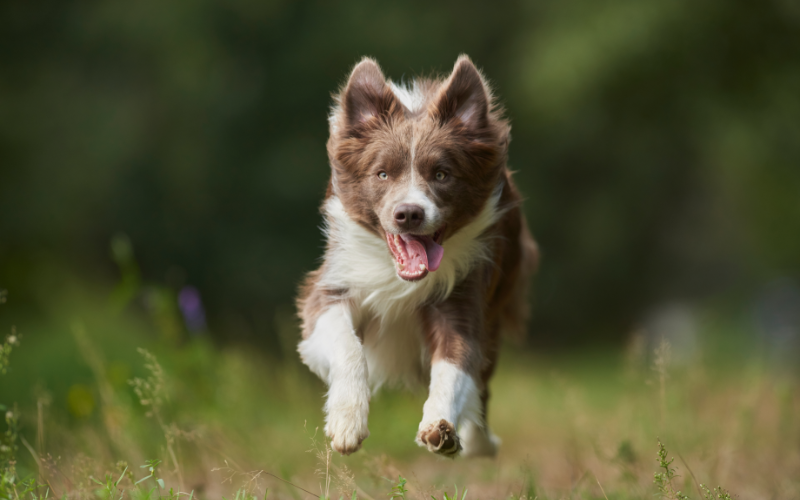
Border Collies are incredibly intelligent and agile, making them exceptional working dogs. However, this breed thrives on having a job to do and requires extensive daily exercise and mental stimulation. Their high energy levels and need for constant engagement make them a poor choice for seniors who cannot keep up with their demanding nature. A more suitable breed for seniors might be the Pug or the Bichon Frise, which require less physical activity and are content with a more relaxed lifestyle.
4. Dalmatian: A Boisterous Breed
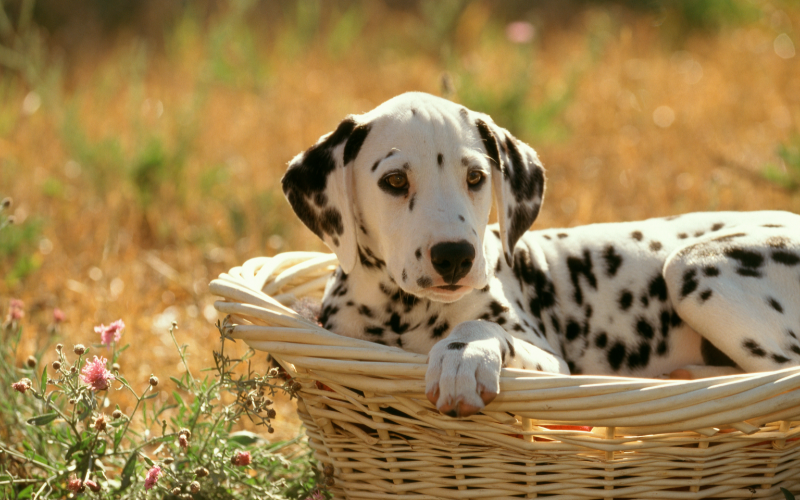
Dalmatians are known for their eye-catching appearance and lively personalities. While they can be affectionate and good-natured, their high energy levels and boisterous nature can be difficult for seniors to manage. Dalmatians require plenty of exercise and consistent training to prevent destructive behaviors. Seniors looking for a more laid-back companion might consider the Boston Terrier or the French Bulldog.
5. Great Dane: The Gentle Giant
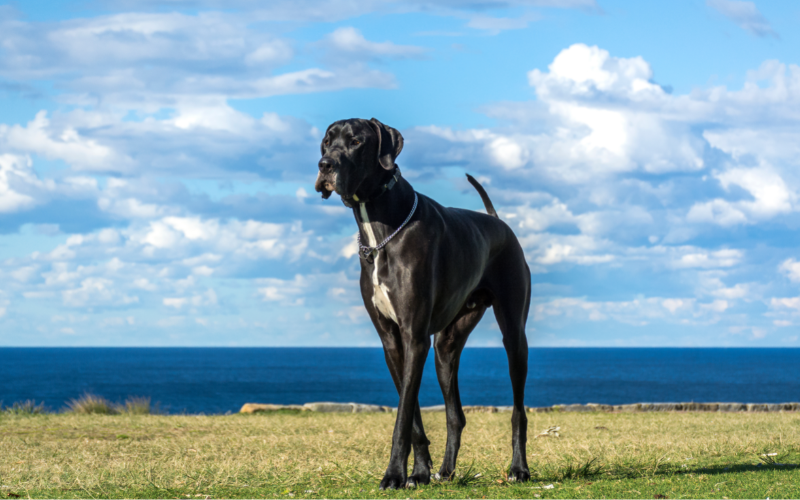
Great Danes are affectionate and gentle dogs, but their sheer size can present challenges for seniors. Weighing up to 200 pounds, these giants can unintentionally knock over or injure their elderly owners. Their size also requires a larger living space and higher food costs. For seniors seeking a large dog with a more manageable size, the Labrador Retriever or the Golden Retriever might be a better option.
6. Akita: A Strong-Willed Protector
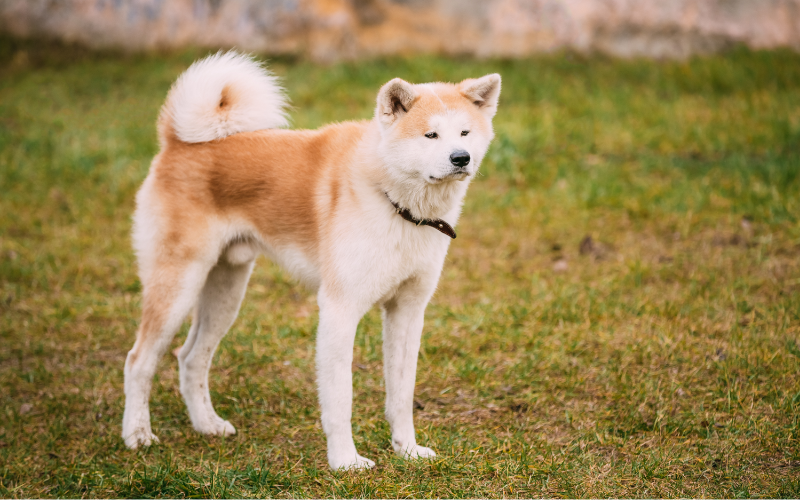
The Akita is a loyal and protective breed, but their strong-willed and independent nature can make them difficult to train. They require consistent, firm handling and socialization from an experienced owner. Akitas are not ideal for seniors who may struggle with establishing authority or handling their potential aggression towards other dogs. An alternative breed to consider is the Cocker Spaniel or the Havanese, which are known for their friendly and easygoing nature.
7. Australian Cattle Dog: A Tireless Worker
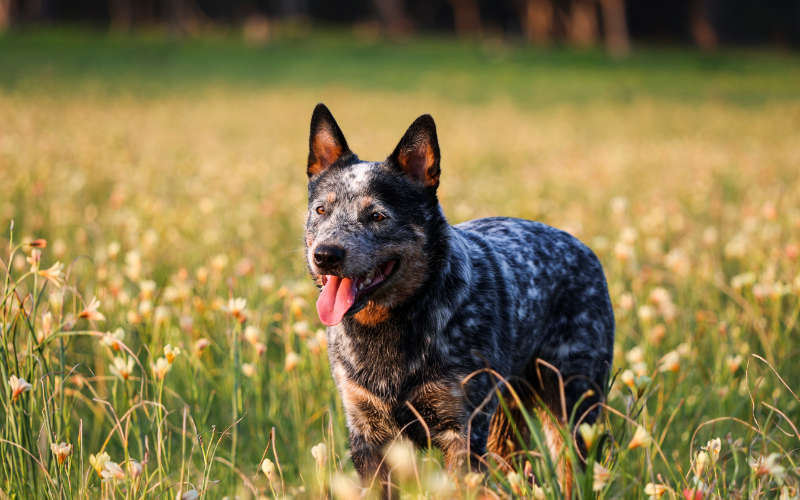
Australian Cattle Dogs are renowned for their intelligence and work ethic, making them excellent herding dogs. However, their boundless energy and need for constant mental and physical stimulation can be overwhelming for seniors. These dogs require an owner who can provide ample exercise and challenging activities to keep them content. Seniors seeking a more adaptable and easygoing breed might consider the Maltese or the Miniature Schnauzer.
8. Weimaraner: A Demanding Athlete
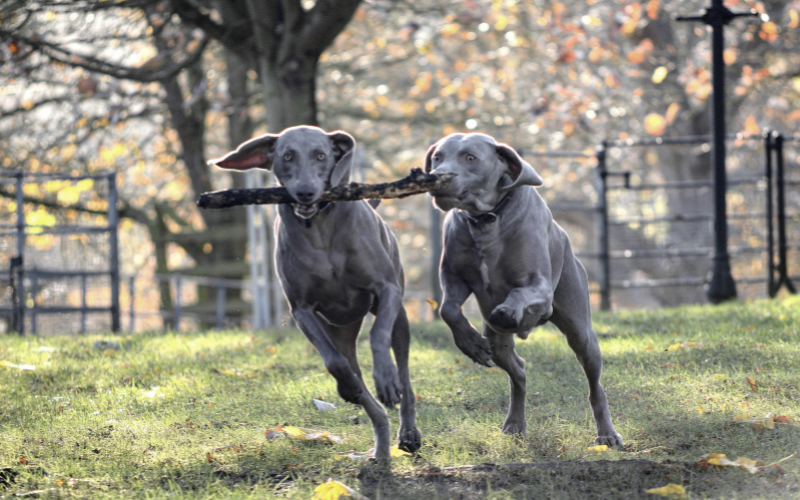
Weimaraners are athletic and energetic dogs, known for their striking appearance and exceptional hunting skills. Their high energy levels and need for extensive exercise make them a poor choice for seniors with limited mobility or a more sedentary lifestyle. Weimaraners can also be prone to separation anxiety, which can lead to destructive behaviors when left alone. Instead, seniors might consider more low-maintenance breeds like the Whippet or the Papillon.
9. Chow Chow: A Strong and Independent Spirit
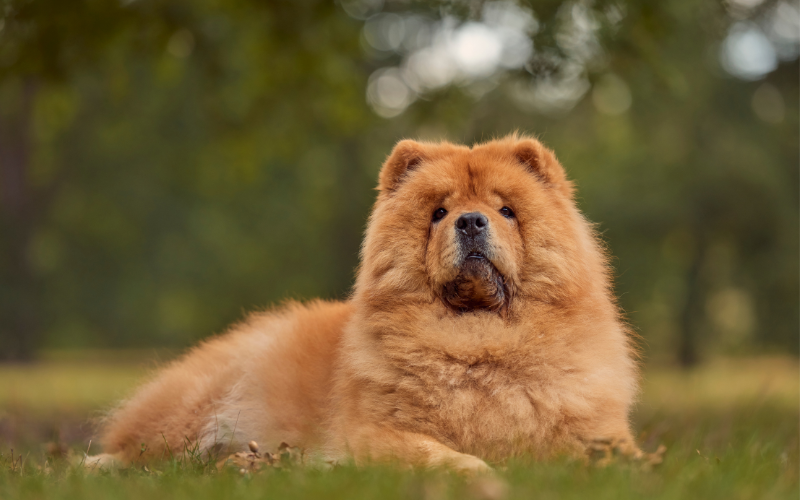
Chow Chows are known for their unique appearance and independent nature. However, this breed can be stubborn and challenging to train, requiring a firm and experienced handler. Their thick coats also demand regular grooming, which may be difficult for seniors to keep up with. For those seeking a less demanding and more affectionate breed, the Corgi or the Lhasa Apso may be a better fit.
10. Saint Bernard: A Lovable but Massive Companion
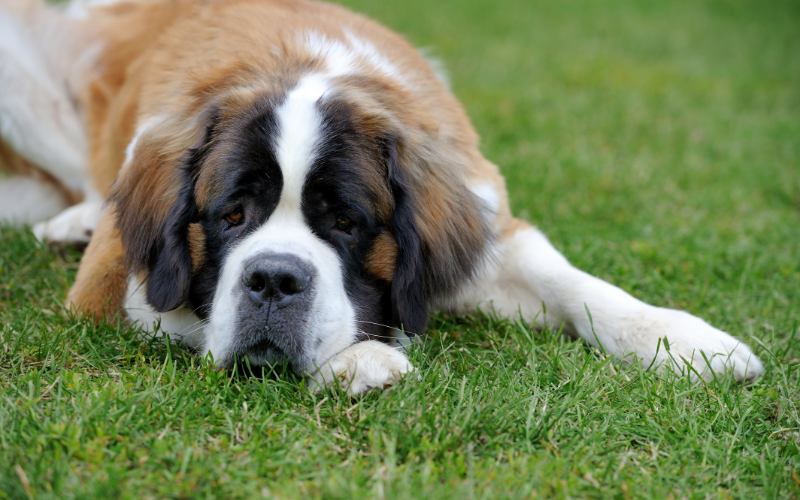
Saint Bernards are known for their gentle and loving nature, but their massive size can be a challenge for seniors. These dogs can weigh up to 180 pounds and require significant space to move around comfortably. Their size also necessitates larger food portions and more challenging grooming tasks. Seniors interested in a large but more manageable breed might consider the Bernese Mountain Dog or the Boxer.
FAQs
What factors should seniors consider when choosing a dog breed?
Seniors should consider their living situation, mobility levels, and ability to provide exercise, grooming, and training when choosing a dog breed.
Are there any dog breeds particularly well-suited for seniors?
Breeds like the Poodle, Shih Tzu, and Cavalier King Charles Spaniel are generally considered more suitable for seniors due to their smaller size, low-maintenance grooming requirements, and adaptable temperaments.
Can seniors still adopt a dog from one of the worst breeds for seniors if they have experience with dogs?
While some experienced seniors may be able to handle more challenging breeds, it’s essential to consider their physical abilities and available time to meet the specific breed’s needs.
How can seniors find the right dog breed for them?
Researching breed characteristics, consulting with veterinarians or breeders, and spending time with different breeds at shelters or breed-specific rescue groups can help seniors find the right dog breed for their lifestyle.
How important is the dog’s age when considering adoption for seniors?
The dog’s age plays a significant role, as older dogs are typically calmer and more adaptable, making them a better fit for seniors compared to high-energy puppies.
Conclusion Worst Dog Breeds for Seniors
In conclusion, when choosing a canine companion, it’s crucial for seniors to consider their lifestyle, physical abilities, and the specific needs of different dog breeds. The top 10 worst dog breeds for seniors discussed in this article are not well-suited for most seniors due to their high energy levels, size, grooming requirements, or stubborn nature. By carefully considering these factors and opting for more suitable breeds, seniors can enjoy the many benefits of pet ownership while ensuring a happy and healthy life for their furry friends.
